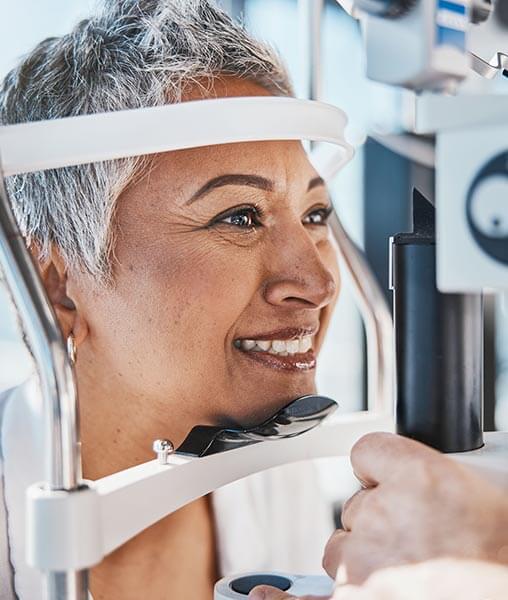Posted by: Albany Cornea | Center For Eye Care Excellence in Uncategorized

More than 11 million Americans are currently living with age-related macular degeneration, but by 2050 it is estimated that number will double. AMD is the leading cause of vision loss for adults over the age of 50, however, recent research has found that certain lifestyle changes may reduce your risk of contracting AMD, and could even slow the progression of degeneration if you are already experiencing symptoms.
Age-related macular degeneration damages the macula, which is a part of the back of the eye near the retina that helps us see objects straight ahead. AMD varies from person to person in how quickly it progresses and affects vision loss, but it will start by causing your vision to blur and will eventually create blind spots in your central vision. While AMD does not result in complete blindness, it will make daily activities like reading, driving, or any work you do close to your eyes very difficult, if not impossible.
The older you get, the more at risk you are of experiencing symptoms of AMD. Women are actually more susceptible simply because they live longer than men on average. And in case you needed one more reason to quit smoking, it has been found that smokers are more likely to lose vision to AMD.
About ten years ago, the first Age-Related Eye Disease Study (AREDS1), sponsored by the National Eye Institute, found that people who supplemented their diets with high levels of vitamins C and E, beta-carotene, zinc and copper reduced their risk of progression to advanced AMD by 25 percent after 5 years. A follow up study completed a few years ago (AREDS2) also found that a diet rich with omega-3 fatty acids can help protect from degeneration.
Eating foods rich in these nutrients may help to slow the progression of AMD. Vitamin C can be found in many fruits and vegetables like dark leafy greens, carrots, bell peppers, avocados, and oranges. You can get plenty of vitamin E from sunflower seeds, almonds, and peanuts. Lean beef and some breakfast cereals are great for getting more zinc in your diet, and fish like salmon and trout are the best sources of omega-3 fatty acids.
Changing your diet to include more of these nutrients won’t miraculously cure age-related macular degeneration, but updating your lifestyle can help maintain vision for those at risk of developing AMD. If you believe you may be at risk for age-related macular degeneration, schedule an appointment with your physician, and continue with regular checkups to protect your eyes’ health and vision. Your mother was right – eat your vegetables!

